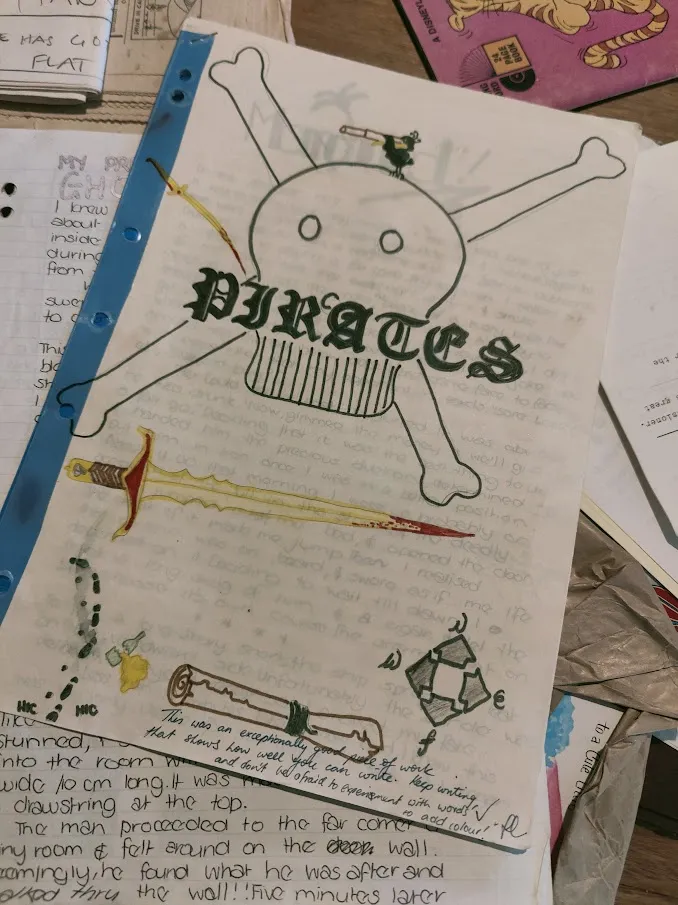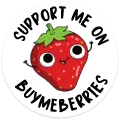"Look, Daddy, cheese!" I sprawl across Dad's back as he thumbs the Saturday paper. My knees hurt slightly as they press into the rough carpet, and the sun warms my left check as it streams through the window. I'm just three years old and impatient for attention, but am leaning into my father and curious to see what is stealing his attention. The letters on the page remain a puzzle, but amid the black and white jumble, I recognize the letters that spell out 'Kraft,' the brand of cheddar cheese in the blue cardboard box that Mum used to bring home back then.
This memory marks a collection of beginning stories, my first word, my first book. In my mind, I see my parents' pride in my budding intelligence, and even after fifty years, the image remains vivid – the blue flannel of my father's shirt and the soft crinkle of the newspaper and the letters of the logo swimming into shape in my mind, the first time I realised that they could create and relay meaning. It did not take me long to read after that. It's hard not to read in a house hold of people who appreciate and value stories.
Motivation to learn has always had an external and internal pull, though I've come to realize, it was mostly extrinsic and introjected. In hindsight, I've always wrestled with discerning my true aspirations. If you delve into my past, you'll uncover that I thrived on praise and feared rejection. When I learned about the various forms of motivation, the scarcity of intrinsic motivation within me hitting me hard. Becoming a teacher wasn't something I entirely wanted but an outcome of my high school literature teacher's praises, her reverberating remarks about my talent, coupled with feelings of failure and only feeling capable of teaching. Those that can't, teach, after all.
I can only wonder at what I could have achieved if I'd only believed in myself, instead of other people's belief in me. I wish I could have grown into my own stories, instead of the stories of me being talented, clever and capable.
I can still visualize a journal with a plastic-coated cover page, a collage of young girls things, chronicling the thoughts of an imaginary young girl named Katie. My teacher had consistantly embellished with crimson 'A's, rather than giving me suggestions for how to improve or critiquing my failings. Later, because of this, I'd find myself arguing in staff rooms, advocating against the motivating power of letter grades. I'd discovered the essence of pedagogy: self-driven students become the most adept learners. Relying solely on rewards could shatter one's spirit in the face of failure. This had happened to me. I never strived - I gave up if things didn't come easily and praise wasn't forthcoming. Deep empathy rejected this method as part of a good teaching practice. The only teachers who ever did me favours were the ones who were critical and constructive in their feedback, and did not focus on grades.

Many years later, I would sit on a bridge over a trout stream and read a story I was writing for my son. He was spellbound and mesmerised, but not forthcoming with praise save to beg for the next installment. 'Maybe', I say, pulling him close before pushing him off into the water for a swim. The words flapped about like butterflies and disappeared into the warm summer breeze. The blood of a mosquito smeared across the transcript and I realised that I wasn't writing for anyone but the joy of writing. I never finished that story, but would write many others over the years, some to share, some to keep to myself. Sometimes stories were just working through personal problems, a way to understand myself and express the rhythm of my soul. Sometimes it was merely creation for it's own sake. I was motivated to write because I had faith in my ability to express myself better in the written word than any other form. When my grandson was born, I gifted the parents a poem. In this way I achieve a little immortality in a piece of paper in a box of keepsakes.
The sole beacon of intrinsic motivation in my life was reading. It offered its own reward, an exquisite pleasure tinged with secrecy, as though I was stealing a forbidden fruit. This kind of indulgence was typical of me, who was hedonistic by nature - later my excesses would be alcohol, food, drugs, even sex. But as a kid, I only had books. There were no limits to what I could explore within their pages. The young adult fiction my mum supplied me with, followed by her shelves of classics, science fiction wonders, and contemporary tales by authors ranging from Bradbury to Hemingway, they all etched their influence onto my growing mind. I was a product of these books, a child born from swimming letters and rustling paper. My only reprimand came when I dog-eared pages or stealthily immersed myself in Virginia Andrews' stories by torchlight beneath my bed – not so much because of reading, but because because Mum believed them to be trash. I'd read under my school desk, in the car, during late hours, and on long and languid afternoons when my mum gently suggested fresh air.
Just last month, I sifted through an old plastic bag of paperwork my mum insisted I take. Why do parents clutch onto such items, only to relinquish them to us as adults? Amid the stack lay remnants of shame – school reports reflecting promise in my youth and then turmoil when I encountered difficulties. The bag had been stowed away, too painful to confront, until recently. And this time, I saw the contents for what they were. Page after page, stories emerged – tales of vampires, mermaids, love between wombats, and treasure-laden islands. Unicorns danced with words and secret realms flowed with milk and honey. She cherished my creativity, her pride undeniable. It's no wonder that I found solace in writing.
Nowadays, I find myself more intrinsically motivated to achieve. Learning new crafts sparks joy, and the triumphs of perseverance swell me with pride. Yet, the tendency to prematurely abandon projects because I'm bored still lingers. Perhaps it's the ever-shifting nature of my mercurial mind. Perhaps it's because when I have learnt something I don't see the point of continuing it. Perhaps part of me is still seeking praise other than my own. Perhaps it's because the only point I see to anything is to love nature, and to be kind, and neither of those have a price tag. 'What is this for', I wonder. 'What is the point?' The nihilism of that makes me retreat into stories to escape.
Once I sprawled across my father's back making meaning from letters I didn't quite understand. Now, I weave a narrative of self discovery as I question what motivates me, and what my goals are. I know my first one: to gift my parents a book of my stories, a gift of love and appreciation. These seem pretty good motivational forces to me.
With Love,

Are you on HIVE yet? Earn for writing! Referral link for FREE account here
